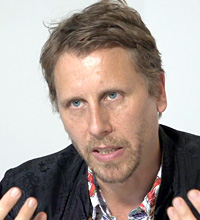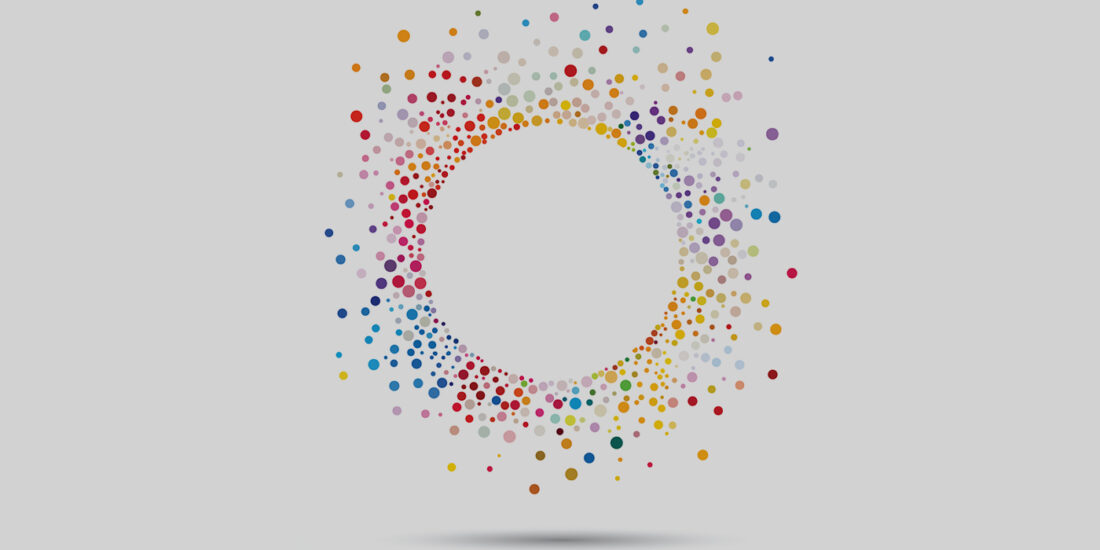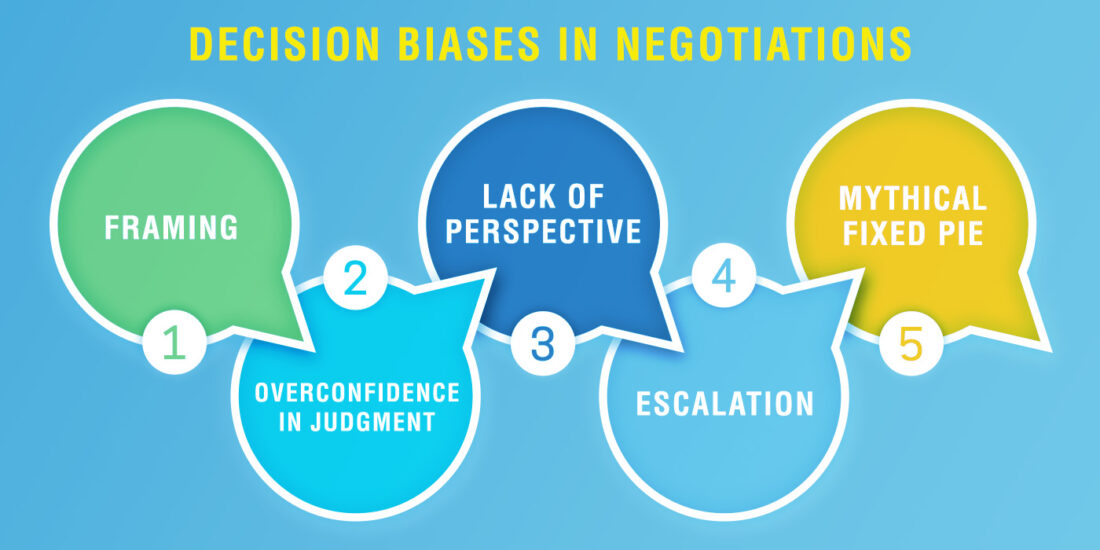An Interview with Beau Lotto on “Seeing Differently”
This week’s issue features an interview with the distinguished neuroscientist Beau Lotto, who will present the opening keynote presentation at the 2015 FFI annual global conference.
The Practitioner: Tell us about Lottolab. What was the vision behind it?
Beau Lotto (BL): Its vision is to create an understanding of how and why we see what we do. That is its first aim. The second is to use our understanding to create opportunities for people to then see differently. Because ultimately what we want is to facilitate creativity and compassion and courage. But if you really want to get people to see differently you have to understand how it is they see. The other aspect in order to do that is, of course, to bring together people who are passionate and interested in a number of fields that all come together over the concept of perception.
The Practitioner: Your website is quite interesting and gives us more questions than answers! For example, “What sound do I make when I look in the mirror?” Tell us about this. Are these questions that you ask participants? Are they conversation starters?
BL: The purpose is to get people to think. It has to do with what is a good question. A lot of questions are not necessarily interesting … much less good. It is remarkable that we don’t even teach children in school how to ask a good question. Instead we teach them how to find the right answer, which is usually about learning a recipe. At Lottolab, everything we do is question driven, and we believe the best questions are those that challenge what you assume to be true already. So the types of questions that we ask, for example, like “What does it mean to be me?” challenge intuitive assumptions of individuality. We have a sense that we are one person, one thing with one meaning. When in fact, inside each of us is a group: we have different personalities depending on our context. We adapt ourselves in different contexts.
None of us are outside observers of nature. We are all defined by our ecology. Our ecology is our environment and our interaction within that environment. That history of interaction is really what defines us. We are fundamentally tied to the things around us. We exist in relation to these things. We are not simply individuals outside of relationships.
The Practitioner: We’re intrigued by the statement that “science is play.” How does this affect the roles of the researchers? When they are asking participants questions, they must influence response simply by being part of the “play” environment.
BL: That is absolutely right because science is play … but play with intention. In other words science is nature’s solution to uncertainty. This is why Lottolab became a public space for science, where we could create experience in the public, on the public (paid for by the public). It is sort of like experiment as experience. What we discovered is that people will behave in a lab very differently from how they will behave in the world. Which is why we turn the lab into a nightclub.
If you are doing marketing, for example, you give questionnaires and participants will give you answers that they would like to be true, or what they think you would like to be true, but not necessarily what is true. Instead if you can study people in their natural habitat you can get a better sense of what they do (their actions) and then can begin to figure out why they are doing it. The aim is to engage with people at multiple levels because, I think, in some sense it is really all about engagement.
The Practitioner: For our audience, those who will be attending your keynote address at the FFI global conference and those who are reading this interview, what do you hope that they will “see” from your work and know from your speech?
BL: In the end, my hope is that they will actually know less than they came in knowing! The reason that I want them to know less is that I want them to doubt. In fact I want them to doubt at the most fundamental level. Only through doubting can we begin to do something different. To do things with certainty means that we will more or less keep doing what we’ve always been doing. But with doubt there is a possibility that you might deviate. It really is the neuroscience of deviation. I want them to know that being creative is the kinds of questions you ask. But to ask a good question you have to be fundamentally aware that you have biases and that those biases come from your history. Everything that you are doing in the moment is the reflex response guided by those biases.
In the case of your audience, there are very complex social histories in the families and there are roles and decisions that everyone is making as a consequence of all of that. The issue is then how could I ever step outside of that history and do something different? And that is where asking good questions comes in. But the first step in asking good questions is to know that you have biases.
For example, investment. When it comes to investment we have certain assumptions. The assumption is that you invest in order to increase your value. Then the more interesting question becomes, “How do you measure value?” Of course we measure value when it comes to financial investments in a very straightforward way, which is money in vs money out: I put in a certain amount of money and I want to get x times y in return. But increasingly, the measure of value, in some circles, is changing.
While one might look for money back of course, I could also be looking for, for instance, an increase in quality of life for those impacted by the investment … or its environmental value. And that becomes part of the return on my investment. We often separate these in thinking about donation vs. investment. I donate and that makes me feel better. But, it is interesting to me to think about the value one is looking for when they invest. That challenges an assumption. Of course you are trying to maximize your return. But, why? Because we know that increasing financial value doesn’t necessarily increase well-being. Whereas increasing personal value does. We can think about social entrepreneurship. Things that are actually investing in a larger benefit but still make money.
So, I hope that the audience will come away with doubt or skepticism and be able to use that to ask good questions. Of course, the most important hurdle to asking good questions is the fear of uncertainty. To ask a question means that you step into a space that says “I don’t know” and we really don’t like not to know. So that is the hardest one. I will talk about why that is and how one might be able to overcome it.
About the contributor
 Beau Lotto is the founder of Lottolab, a cross between an art studio and a science lab — and from which he mines data for his research in human perception. Lotto’s passion shows itself in his unorthodox, interactive approach to research. He uses art and performance as a mass experiment to teach people that what they perceive as unbiased reality is actually a neurologically produced response to data, grounded in personal and biological history.
Beau Lotto is the founder of Lottolab, a cross between an art studio and a science lab — and from which he mines data for his research in human perception. Lotto’s passion shows itself in his unorthodox, interactive approach to research. He uses art and performance as a mass experiment to teach people that what they perceive as unbiased reality is actually a neurologically produced response to data, grounded in personal and biological history.




